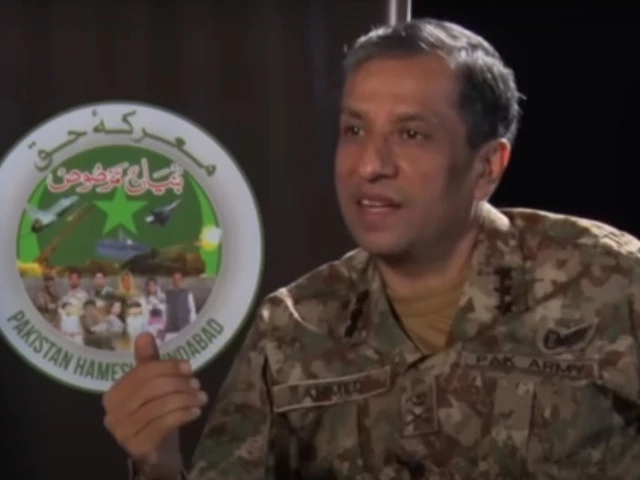Director-General of Inter-Services Public Relations (DG ISPR) Lieutenant General Ahmed Sharif Chaudhry has said that Pakistan’s military development strategy has always focused on integrating effective platforms and original technology. He clarified that Pakistan is not engaged in a weapon race with India and has never tried to hide or manipulate data.
“We are open to acquiring all kinds of technology, whether they are original, eastern or western,” DG ISPR said in an interview with Bloomberg.
Pakistan does not participate in an arms race with India or attempts or tries to hide or manipulate data, DG Ispr said.
Read: Military notes of Indo-Pak conflict: conclusions and conclusions
India was unable to shoot a single Pakistani aircraft during Operation Marka-E-Haq. DG ISPR’s statement comes after US President Donand Trump confirmed that seven Indian jets were shot down during the conflict.
DG ISPR also recognized the effective performance of Chinese origin platforms and other weapons used by the Pakistani armed forces during surgery. Bloomberg reported that Pakistan’s Chinese origin J-10C fighter jets had shot several Indian Air Force, including Rafale, during surgery.
Earlier in August, Pakistan also announced the addition of Z-10ME Fighter Helicopter to its defense. The Pakistani military has already carried American carried F-16 fighter jets along with a mix of war machines of Chinese origin.
Read more: The policy behind Indo-Pak War
The four-day Indo-Pak War in May 2025 crossed earlier thresholds for geographical reach, employed unprecedented systems and produced massive levels of incorrect information. Until this day, ambiguous and in some cases becomes directly manufactured, report propogated by Indian media.
Pakistan’s calibrated and mature response combined with effective media management and international diplomacy moved strategic equilibrium in favor of its advantage. The war ended after a significant diplomatic commitment of Trump. This conflict proved far more expensive for India with loss estimated at over $ 1.7 billion compared to Pakistan’s $ 236 million.
The crisis not only exposed the political irresponsibility of India, but also internationalized the Kashmir issue, while Pakistan’s retardation demonstrated its commitment to regional stability. Without meaningful dialogue, however, the risk of future crises remains, which requires continued military readiness and diplomatic commitment to deter further aggression.



